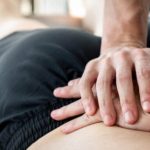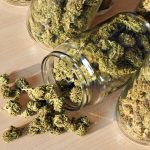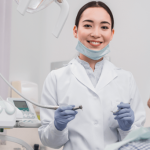
HIV PEP (Post-Exposure Prophylaxis) is a regimen of anti-HIV medications that an HIV-negative person takes after being potentially exposed to the virus to prevent or reduce their chance of acquiring HIV. Just like in other places, the HIV PEP in Singapore are most often taken for one month, but the length of time is dependent upon the type and amount of exposure, frequency of sexual intercourse with an infected person, etc.
It is generally recommended that PEP is used when “the likely source [of HIV] is known and presents a definite risk,” meaning if a condom breaks during sex, if someone deliberately shares a needle with you, or if you have been sexually assaulted. However, PEP may also be used after significant exposure to HIV from a source that cannot be definitely ruled out as being high-risk.
The Centers for Disease Control and Prevention (CDC) lists the following as examples of situations when considering using PEP:
- You were exposed to HIV-positive blood through a needle stick or other sharp object. An injury from a “needle stick” during occupational exposure to HIV-positive materials is one of the best indications for the use of antiretroviral therapy (ART). The risk depends on the type and severity of the injury and amount of fluid or blood contact.
- You had sexual contact with someone whose status you do not know, and you are concerned that they might be at risk for HIV. This includes sexual intercourse, anal or vaginal, without a condom.
- You shared equipment to prepare drugs to get high (such as needles and syringes, cookers, cotton, water) with someone who is known to be HIV positive or whose status you do not know.
- You had sex with someone who has HIV without using a condom. When the HIV status of the person you had sex with is unknown, PEP may be an option if your sexual partner was at high risk for getting HIV during the time you had sex.
- You were sexually assaulted. If you believe that the perpetrator of an assault may be at high risk for HIV infection, seek care as soon as possible to determine whether PEP is needed.
It is important to note that antiretroviral drugs are effective in reducing risks of getting HIV. However, they’re only partially effective in preventing transmission after either occupational or non-occupational exposures.
So, Does HIV PEP Work?
When getting HIV PEP in Singapore and it is taken correctly, it is highly effective in preventing HIV infection. However, PEP does not guarantee a 100% infection-free outcome. By more than 80%, PEP may help to lower the risk of acquiring HIV.
The bottom line is that there are no definite guidelines for determining if PEP will be effective. It should only be considered under extreme circumstances, for instance, when someone is at a high risk of contracting HIV.
If you have to take PEP after being potentially exposed to HIV, it’s important that you complete the entire medication regimen. Missing doses or not completing the 28-day treatment course could decrease the effectiveness of PEP and reduce your chances of preventing an infection. Once you’ve started taking medications, continue to take them every day even if you start feeling better right away; this can speed up your recovery time and make it much less likely for HIV to spread in your body. Some people who use PEP still become infected with HIV.
What Are The Side Effects of HIV PEP?
The side effects of PEP can range from mild to severe. Your doctor should explain this when prescribing for you HIV PEP in Singapore. Most people develop at least one adverse effect while taking the medication. Here are some of the possible side effects of using HIV PEP
- Many people experience mild nausea and vomiting; however, it is important not to stop taking your medications or take them in a different way because of these symptoms – they will go away once you get used to the medicine.
- If you take PEP for four weeks, it is very common to experience fatigue and/or headaches. These side effects usually go away after the first few days of treatment.
- Some people may also become irritable or anxious, but these issues should improve with time.
- It is not uncommon for patients to develop a rash while taking HIV PEP; this suggests that your immune system is responding positively to the medication. However, if you experience a severe rash (e.g., blistering), seek medical help immediately because the drug(s) may interfere with your body’s ability to fight infection.
- Other possible adverse effects include kidney or liver problems. If you experience decreased urine output combined with other symptoms such as swelling around the eyes or unexplained fatigue, seek immediate medical advice.
HIV PEP may cause low levels of the virus to come back during treatment, but this doesn’t mean you have become re-infected with HIV. It just means that your body is building an immune response to HIV at a faster rate than the drugs can fight off the infection.
The takeaway; taking HIV PEP in Singapore is a better way to prevent HIV and PEPs are effective, but you shouldn’t overlook any side effects that appear to be persisting. If you experience any severe side effects, contact your health care provider right away.
If needed, your health care provider may adjust your medications or reduce the amount of PEP you are taking. If health care providers do not think it is safe to keep you on PEP, they may ask you to stop taking it.
Do I Need To Take Any Special Precautions During And After Taking PEP?
While taking PEP following exposure to HIV, you should avoid any contact with the bleeding (cuts, abrasions) and mucous membranes (eyes, mouth) of other people. This is to prevent the spread of both the virus and drug-resistant viruses if you become infected while taking PEP. In addition, you should not have sex without a protective barrier during this period – even if your partner takes HIV medications as well. Condoms or dental dams can be used for vaginal or anal sex.
The Bottom Line
HIV PEP does work, but it is only prescribed under certain circumstances. You can greatly decrease your chances of contracting HIV if you go through the treatment immediately after being exposed to the virus, especially when you engage in risky sexual behaviors or share needles with someone HIV positive.
However, taking this drug does not mean that you won’t contract HIV, and some people do still get infected even while using PEP. It is important always to use a barrier during sex, whether you’re on PEP or not. Also, if needed, take medications exactly as instructed by your doctor and make sure to report any side effects immediately. Give us a call now, if you have any questions or need more information on HIV PEP in Singapore. Call: +65 8886 7890.
Dr Ben Medical @ Raffles Place : Ear Wax Removal | Allergy Testing | Erectile Dysfunction
1 Raffles Pl, #04-50, Singapore 048616
+65 8886 7890
https://www.drbenmedical.sg/




